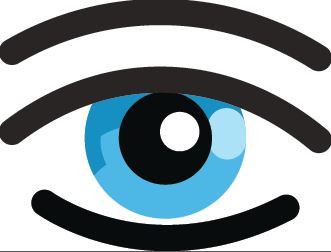
What are somatic workouts?

How to curb your stress eating

How to spot Parkinson’s disease symptoms

8 simple ways to reduce ultra-processed foods in your diet

Heart failure symptoms in women: How they’re different

GERD diet: Foods to avoid to reduce acid reflux

Strong is the new skinny

Everyday habits that sneakily weaken your bones

Don’t wait to get help for back pain

Correcting how you walk may ease osteoarthritis knee pain
Diseases & Conditions Archive
Articles
Build a better bladder
Exercises, lifestyle change, medications, and procedures can alleviate incontinence and give you your life back.
A leaky bladder or a sudden urge to go to the bathroom is uncomfortable andembarrassing. But you can take steps to alleviate the problem. "Some people tell me they would have sought treatment sooner if they'd known it was this simple," says Dr. Anurag Das, director of the Center for Neurourology and Continence at Harvard-affiliated Beth Israel Deaconess Medical Center.
Lifestyle changes
One of the first lines of defense is pill-free and costs nothing: lifestyle change. For urge incontinence (see "Types of incontinence"), you can try timed voiding (urinating on a schedule) and bladder guarding, which teaches you to cope with triggers that set off the urge to go, such as washing dishes or hearing water. "You squeeze your muscles to hold in urine before a trigger, which sends a message to the brain that this is not the time to go," says Dr. Das. Other lifestyle changes include watching fluid intake; quitting smoking, to reduce coughing and pressure on the bladder; and minimizing bladder irritants such as caffeine, alcohol, and carbonated drinks.
Ask the doctor: Protecting eyesight with vitamins and supplements
Ask the doctor
Q: My eyesight is declining, but my eye doctor tells me I do not have any serious eye problems. Are there any vitamins or supplements I can take to protect my eyes?
A: Based on the most recent research, there is no proven vitamin cocktail to prevent vision loss. The most common causes of vision loss as you grow older are cataracts and age-related macular degeneration (AMD). Since cataracts can be treated with simple surgery, much of the attention for prevention of vision loss has focused on macular degeneration. Initially, there was excitement about antioxidant vitamins, since a combination of vitamins A, C, and E delayed progression of AMD in previously diagnosed individuals. However, the Age-Related Eye Disease Study showed no benefit from antioxidants in people who did not already have AMD. A single study in women (average age 64) reported that a combination of vitamins B6, B12, and folate reduced the development of AMD over a seven-year period. But this study has not been replicated, and it hasn't been done in men, which makes it hard to recommend these supplements.
What you should know about fibroids
These uterine tumors, though usually benign, can cause heavy bleeding, cramps, and pregnancy complications. But there are several good options for treatment.
Fibroids—smooth muscle tumors of the uterus—are common, affecting as many as 75% of women. They are rarely cancerous, and they cause symptoms in only about 20% of the women who have them. However, if you're one of those with symptoms like heavy menstrual bleeding, bad cramps, pelvic pressure, constipation, or frequent urination, you know how fibroids can disrupt your life. Even if they don't cause symptoms, they may grow into the uterine cavity, potentially complicating a pregnancy and raising the risk of miscarriage.
"Managing uterine fibroids depends on several factors, such as a woman's symptoms, whether or not she wants to have children, her age, and her personal preferences," says Dr. Hye-Chun Hur, director of the Division of Minimally Invasive Gynecologic Surgery at Harvard-affiliated Beth Israel Deaconess Medical Center and associate medical editor of Harvard Women's Health Watch.
Hold off before taking antibiotics for respiratory infections, study suggests
A Spanish clinical trial of 400 people—two-thirds of whom were women—has indicated that waiting to fill an antibiotic prescription may be a good idea for people with sniffles, coughs, sore throats, and other respiratory symptoms.
Researchers recruited volunteers who sought care for respiratory symptoms in primary care clinics throughout Spain. The volunteers were randomly assigned to four equal groups. One was given antibiotics and told to take them immediately. Another was sent home without antibiotics but told to return to the clinic if they hadn't improved after several days. The two remaining groups were told to wait to take antibiotics—one was asked to return to the clinic to get their mediation after three days; the other group was given an antibiotic, but told to take the medication only if their symptoms hadn't improved after five to 10 days.
A new look at treating Alzheimer's disease
Image: Thinkstock
Tau proteins, and not necessarily beta-amyloid, may be the key to unlocking a viable treatment.
Alzheimer's disease affects more than five million people, and that number is expected to more than double by 2050. While there is no cure, attention has refocused on what many researchers believe is a major player in Alzheimer's: tau proteins.
Heart disease: All in the family history
Image: Thinkstock
Is heart disease in your genes? And if so, can you do anything about it?
Cardiovascular disease continues to be the No. 1 killer of men, and while strides have been made to reduce the risk of heart attack and stroke, one area that remains elusive is genetics.
Fight back against gout
This common inflammation of the joints can be treated and managed with medication and lifestyle changes.
Gout affects more than eight million adults, six million of whom are men. It often strikes suddenly, like flicking on a light switch, and the pain is severe, with intense swelling and redness.
Food choices can dictate if you get gout, as high intake of organ meat, shellfish, and alcohol can raise your risk. But diet is only a part of it. "There is a direct relationship between advancing age and gout," says Dr. Robert Shmerling, clinical chief of rheumatology at Beth Israel Deaconess Medical Center.
When to treat a narrowed heart artery
Ask the doctor
Q. A test showed a 50% blockage in one of my major heart arteries. That sounds pretty bad to me, but the cardiologist said I didn't need a stent. Why?
A . Your reaction is not unusual. Many people find it hard to understand why that degree of blockage wouldn't be treated with a stent—a tiny, flexible mesh tube that props open a newly cleared artery. But while stents can be helpful, they're not risk-free. The procedure to open the artery (angioplasty) involves threading a balloon-tipped tube from the wrist or the top of the thigh up to the heart. Minor risks include discomfort and bleeding at the insertion site. Rare but more serious risks (such as a heart attack) occur in about 3% of people undergoing the procedure. And to prevent blood clots at the stent site, people need to take anti-clotting medications for up to a year afterward.
Artery disease below the belt
Peripheral artery disease can be debilitating and dangerous.
Most often, concern about atherosclerosis (when fatty deposits clog arteries) centers on the coronary arteries, which serve the heart. But the arteries outside the heart—the so-called peripheral arteries—are also vulnerable.
When you're active, your leg muscles need extra oxygen. But narrowed arteries in the legs can't deliver enough blood and oxygen to keep up with the demand. The result is pain in the calf, thigh, or buttock while walking that goes away with rest. Known as claudication, it's the classic symptom of peripheral artery disease (PAD). But many people with PAD either don't have symptoms or mistake them for another problem. As a result, PAD often goes unrecognized.
Sleep apnea solutions that lower cardiovascular risks
Image: Bigstock
Devices to treat nighttime breathing problems may help lower blood pressure and reduce the harm to your heart.
Peaceful slumber is often a pipe dream for people with obstructive sleep apnea. More than 25 million Americans have this problem, in which the tongue or throat tissue temporarily blocks the airway during sleep. The resulting pauses in breathing (called apneas) lead to explosive snoring or gasping for breath—sometimes more than 30 times per hour.

What are somatic workouts?

How to curb your stress eating

How to spot Parkinson’s disease symptoms

8 simple ways to reduce ultra-processed foods in your diet

Heart failure symptoms in women: How they’re different

GERD diet: Foods to avoid to reduce acid reflux

Strong is the new skinny

Everyday habits that sneakily weaken your bones

Don’t wait to get help for back pain

Correcting how you walk may ease osteoarthritis knee pain
Free Healthbeat Signup
Get the latest in health news delivered to your inbox!
Sign Up











